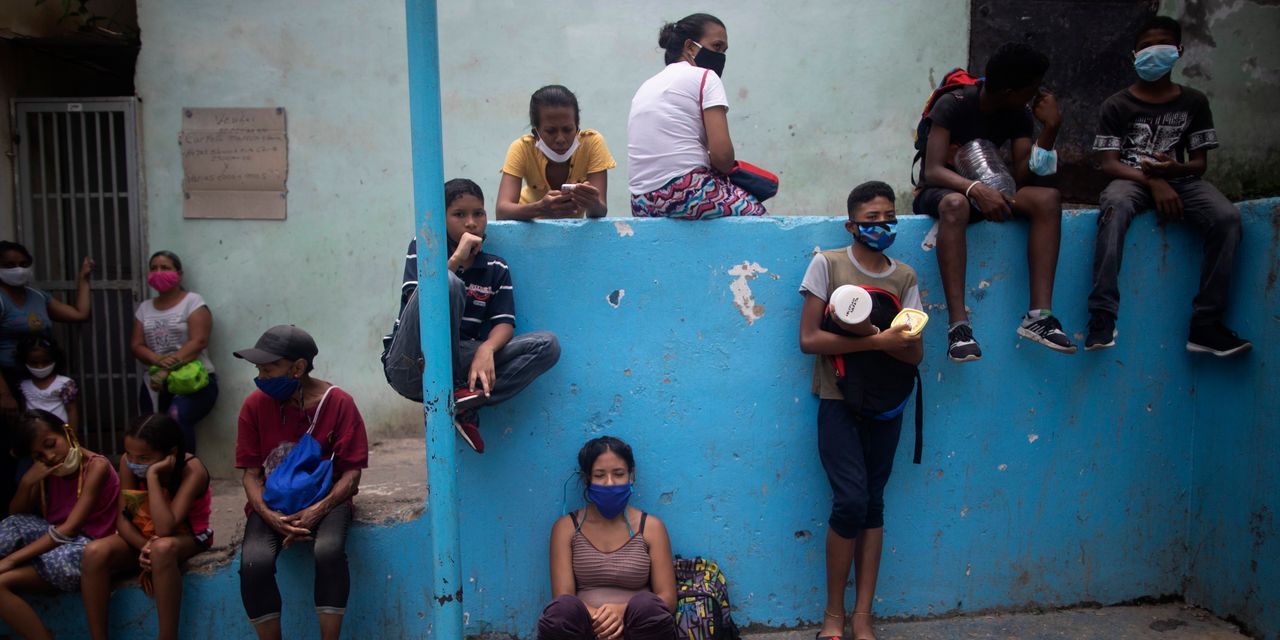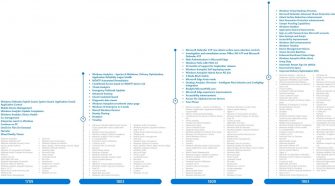Ana Nuñez, a 62-year-old retired municipal worker in western Venezuela, says her meals often consist of just a few corn-flour pancakes, known as arepas.
Even when she has money to buy groceries in the city of Maracaibo’s teeming flea market, she said that “instead of quality food they sell garbage, like animal hides and rotten cheese.”
A widespread scarcity of gasoline is the latest blow to domestic food production in Venezuela, preventing goods from getting to market and farmers from filling up their tractors. Food production in this oil-rich nation, led by its socialist president, Nicolas Maduro, had already been hobbled by shortages of seeds and agrochemicals, price controls that made raising crops unprofitable and government seizures of farms and food-processing plants.
Venezuelans aren’t the only ones going hungry. Across Latin America the economic blow caused by the Covid-19 pandemic has thrown millions out of work and into poverty. From Mexico City to Santiago, people are skipping meals, lining up at soup kitchens and begging, United Nations agencies say.
A recent U.N.-sponsored report found that 9.3 million people in Venezuela lacked enough safe and nutritious food for normal human growth and development. A soup kitchen in Caracas.
Photo:
Ariana Cubillos/Associated Press
But conditions in Venezuela, which even before the pandemic was suffering the worst economic meltdown in its history, are by far the most dire.
A recent U.N.-sponsored report described Venezuela as having the fourth-worst food crisis in the world, behind only war-ravaged Yemen, Afghanistan and the Democratic Republic of Congo.
The report, published in April by the Global Network Against Food Crises and the Food Security Information Network, said that 9.3 million people—about one-third of Venezuela’s population—lacked enough safe and nutritious food for normal human growth and development last year. It found that 13% of Venezuelan children under the age of 5 are stunted and that 30% are anemic.
“Despite possessing the world’s largest oil reserves Venezuela is currently one of the world’s most concerning acute food insecurity hot spots,” the report said.
That is in part because staples like milk can’t make it to stores. Armando Chacín had produced 400 gallons of milk a day on his farm, but no gasoline means transport trucks are grounded. Mr. Chacín can’t afford to buy black-market fuel—which costs $10 a gallon—to deliver the milk himself.
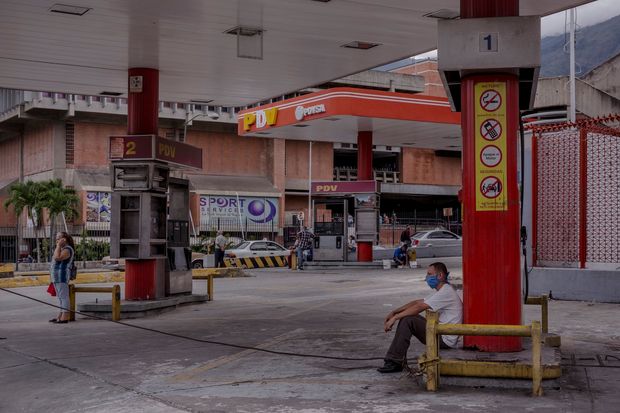
The collapse of Venezuela’s oil industry has made gasoline scarce.
Photo:
Oscar B.Castillo for The Wall Street Journal
Rather than watching it spoil, he turns his milk into an artisanal cheese that can be stored longer and is easier to transport than milk.
“The gas shortages have buried us,” said Mr. Chacín, who is president of Venezuela’s cattle ranchers association.
In the fertile area near the Colombian border, tractors and combines sit idle while some farmers move their products on the backs of mules. In low-lying areas near Lake Maracaibo, farmers lack gasoline to run water pumps and have lost thousands of acres of crops to flooding, said José Urdaneta, who grows 100 acres of plantains near the town of Sucre.
Because it now costs $140 to fill up his Ford pickup, Mr. Urdaneta cut back on trips to his farm. He was late applying fertilizers and pesticides and his yields fell 30%.
“In farming you have to do everything right on time,” he said.
With domestic production of food hobbled, Venezuela relies on food imports, which make up 85% of the food supply. But these days, the authoritarian government of Mr. Maduro has less cash to import food because of the collapse of oil production, which had accounted for nearly all of the country’s export income.
U.S. sanctions of Venezuela’s oil sector under the Trump administration make it illegal to trade or do business with Venezuela’s national oil company. That means it is more difficult to import the gasoline the country needs.
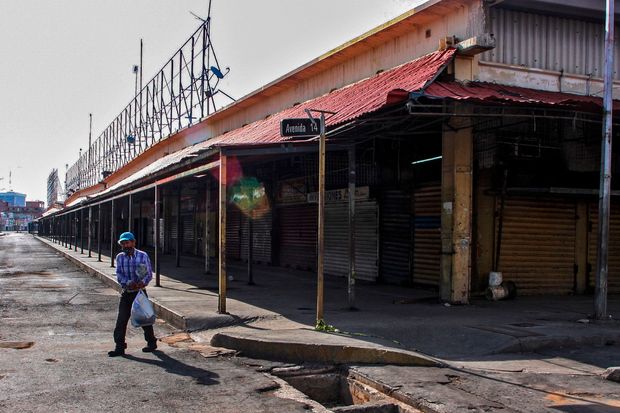
With domestic production of food hobbled, Venezuela relies on food imports, which make up 85% of the food supply. A market in Maracaibo.
Photo:
luis bravo/Agence France-Presse/Getty Images
“While the food crisis didn’t begin with U.S. sanctions, there is certainly no way you can say that the sanctions are not aggravating things,” said Geoff Ramsey of the Washington Office on Latin America, a policy group. “We are very concerned that the country is on the edge of an irreversible catastrophe.”
The Maduro government hands out basic food boxes to millions of residents, but deliveries are infrequent and U.S. investigators say the program is riddled with corruption. Last year, U.S. prosecutors accused Alex Saab, a Colombian businessman and Maduro ally, of using shell companies to steal millions of dollars from the food handout program.
In June, Mr. Saab was arrested in the African island nation of Cape Verde, whose government is weighing a U.S. request to extradite him on money-laundering charges.
A lawyer for Mr. Saab didn’t respond to emails seeking comment.
The Maduro regime accuses the U.S. of trying to kidnap Mr. Saab, who they say is working on a humanitarian-aid mission for Caracas.
The Ministry of Information, which handles requests for comment for the Venezuelan government, didn’t return phone calls and emails.
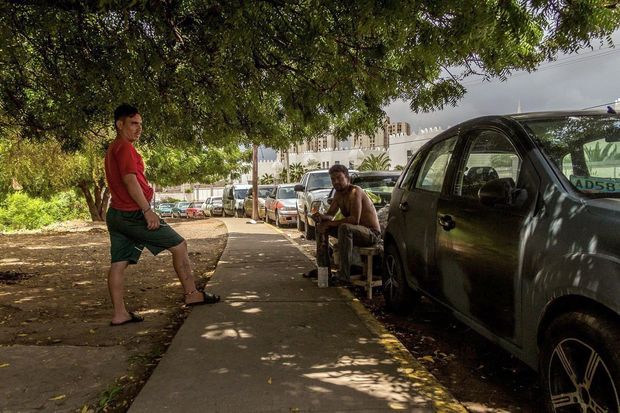
People waited outside a gas station in Maracaibo recently.
Photo:
HENRY CHIRINOS/EPA/Shutterstock
Even when supermarket shelves are stocked, hyperinflation that hit 9,500% last year and high unemployment mean that millions of Venezuelan families can’t afford enough to eat. The U.N. report said that the monthly minimum wage of just a few dollars buys less than 5% of required basic foodstuffs for the average family.
“We’ve been saved by the avocados and bananas growing near our house,” says Carlos Alonso, a 35-year-old farmworker in the western state of Yaracuy.
Others rely on remittances from relatives living abroad, but these cash transfers have been cut in half amid Covid-19 quarantines and economic shutdowns, said Susana Raffalli, a food-security consultant in Venezuela. She said Mr. Maduro is reluctant to acknowledge the scope of the crisis or to allow the World Food Program and other international aid groups to distribute the massive quantities of food Venezuela needs.
“This is not yet a famine but we are in a food emergency,” Ms. Raffalli said. “The food-supply system has totally broken down.”
Copyright ©2020 Dow Jones & Company, Inc. All Rights Reserved. 87990cbe856818d5eddac44c7b1cdeb8






